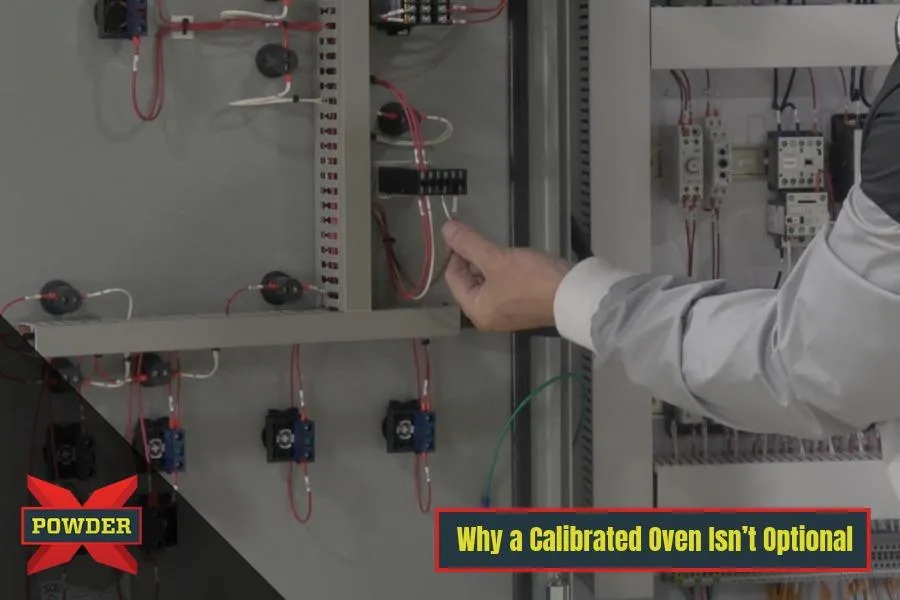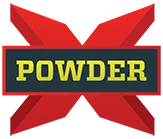
Why a Calibrated Oven Isn't Optional in Powder Coating
Let’s get one thing straight: if your powder coating oven isn’t calibrated, your entire operation is built on guesswork. And in this business, guesswork isn’t just expensive, it’s reputation-shattering.
If you’re serious about achieving professional results, avoiding rework, and building a trusted shop, a properly calibrated oven is non-negotiable. Here’s why.
The Powder Cure Isn’t Just About Heat, It’s About Precision
Powder coating is a chemical reaction, not just a bake-and-go process. When powder hits your part and enters the oven, it melts, flows, and chemically cross-links to form a hardened, durable finish. That transformation must occur within a very specific temperature window for a specific time. Miss either of those by too much and you’ve got a coating that will fail.
And here’s the kicker: the temperature inside your oven is rarely what your control panel says it is… unless it’s been calibrated.
What Happens When an Oven Is Out of Calibration?
Imagine you’re baking a cake that needs to cook at 350°F. Now imagine your oven is actually running at 300°F, but the display thinks it’s on target. The cake never sets properly. Now apply that to powder coating, and the consequences are far worse.
Under-cured powder stays brittle. It chips. It cracks. It looks good until it doesn’t.
Over-cured powder discolors, loses gloss, and can even delaminate.
Inconsistent results from batch to batch destroy trust with your customers—and ruin your profit margin.
The Illusion of Accuracy: Why Thermostats Lie
Most ovens come with a temperature controller that shows you the air temperature, not the actual part temperature. That air temp might hit 400°F, but if your part hasn’t reached that internally, the cure hasn’t truly begun. And if your oven’s controller hasn’t been calibrated with a certified temperature probe, it could be 20–50 degrees off.
Joey’s Note: A common rookie mistake? Using infrared guns to check part temps. They’re great in theory, but factors like reflectivity, part shape, and distance render them wildly inaccurate on powder-coated surfaces.
Calibration = Consistency
When your oven is properly calibrated:
You know your part temp matches the cure schedule
You can repeat results with confidence
You reduce rework, scrap, and unhappy callbacks
You comply with coating specs (AAMA, MIL-SPEC, etc.)
This isn’t just about quality, it’s about credibility. Clients in automotive, aerospace, or architectural sectors demand documented oven calibration. No calibration? No contract.
Calibrating Your Oven: The Basics
Here’s a quick breakdown of what a pro-level oven calibration process looks like:
Thermocouple Test: Attach probes to parts of varying thickness. Insert into a fully heated oven.
Soak Time Logging: Record how long each part takes to reach cure temp (e.g. 400°F).
Build a Temperature Profile: Map hot/cold zones. Most ovens have them.
Adjust Controller or Burners as Needed: Fine-tune to eliminate uneven heating.
Repeat Regularly: At least every 3–6 months, or if you notice quality changes.
If you’re using a gas-fired oven with a non-modulating burner, you’re likely riding a rollercoaster of inconsistent temps. Upgrade to a modulating burner or prepare for trouble.
How to Talk About This with Your Customers
Here’s the smart move: build calibration into your brand promise.
Let your clients know you bake with precision-calibrated ovens. It communicates that:
You follow technical data sheets religiously
You cure to thickness and spec, not guesswork
You deliver durable, long-lasting finishes, every time
Joey’s Tip: “Powder worth its price has overbake resistance. So always go over time, never under.”
What’s the Cost of Not Calibrating?
Let’s put it in plain English.
If you save $500 by skipping calibration but have to strip and redo even one job because the powder failed? You’ve just burned through thousands, not to mention your reputation.
You’re in this to grow. You’re building more than parts, you’re building trust. That starts with calibrated control.
Final Word
A calibrated oven isn’t a nice-to-have. It’s the foundation of a pro shop. It saves you time, money, and heartache. And more importantly, it saves your reputation.
If your oven’s overdue, schedule that calibration today.
